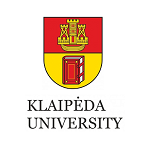ADVANCED TEACHING METHODS FOR STUDENTS’ COMPETENCIES DEVELOPMENT
Last modified: 24.02.2017
Abstract
Competence-based approach to study process is frequently discussed topic among academicians, learners and government authorities due to its practical contribution to better graduates’ employment abilities. The aim of the given study is to identify teaching methods with the biggest contribution to development of students’ competencies. Bachelor level students of management-based study courses were surveyed in order to evaluate the progress in acquiring certain management competencies. Self-evaluation study was performed before and after the course. The acquired data was processed and the contribution of analysed teaching methods to competencies’ development was assessed.
Keywords
References
Barbezat, D. P., & Bush, M. (2013). Contemplative practices in higher education: Powerful methods to transform teaching and learning. John Wiley & Sons.
Bok, H. G., Teunissen, P. W., Favier, R. P., Rietbroek, N. J., Theyse, L. F., Brommer, H., ... & Jaarsma, D. A. (2013). Programmatic assessment of competency-based workplace learning: when theory meets practice. BMC medical education, 13(1), 123.
Competency-Based Education: Achieving superior outcomes through flexible, personalized learning (2014). Elsevier Education. Downloaded from https://evolve.elsevier.com/education/pdf/CBE_Trend_Perspective_2014.pdf
Deißinger, Th., Hellwig, S. (2011). Structures and functions of Competency-based Education and Training (CBET): a comparative perspective Mannheim: Federal Ministry of Economic Cooperation and Development.
Doll Jr, W. E. (2015). A post-modern perspective on curriculum. Teachers College Press.
EACEA, Eurydice. (2012). Developing Key Competencies at School in Europe: Challenges and Opportunities for Policy. Eurydice Report. Downloaded from http://eacea.ec.europa.eu/education/eurydice/documents/thematic_reports/145en.pdf
Entwistle, N. (Ed.). (2015). Handbook of Educational Ideas and Practices (Routledge Revivals). Routledge.
European Commission. (2015). European Semester Thematic Fiche: Skills for the Labour Market. Downloaded from http://ec.europa.eu/europe2020/pdf/themes/2015/skills_for_labour_market_20151126.pdf
European Commission. (2016). A New Skills Agenda for Europe: Working together to strengthen human capital, employability and competitiveness. T Downloaded from https://ec.europa.eu/transparency/regdoc/rep/1/2016/EN/1-2016-381-EN-F1-1.PDF
Johnstone, S. M., & Soares, L. (2014). Principles for developing competency-based education programs. Change: The Magazine of Higher Learning, 46(2), 12-19.
Klein-Collins, R. (2013). Sharpening our focus on learning: The rise of competency-based approaches to degree completion. Occasional Paper, 20.
Morris, M. H., Webb, J. W., Fu, J., & Singhal, S. (2013). A Competency‐Based Perspective on Entrepreneurship Education: Conceptual and Empirical Insights. Journal of Small Business Management, 51(3), 352-369.
Neck, H. M., Greene, P. G., & Brush, C. G. (Eds.). (2014). Teaching entrepreneurship: A practice-based approach. Edward Elgar Publishing.
Power, L., Cohen, J. (2005). Competency-Based Education and Training Delivery: Status, Analysis and Recommendations. Downloaded from http://datatopics.worldbank.org/hnp/files/edstats/IDNdprep05.pdf
Rasmussen K., Northrup P. & Colson R. (2016) Handbook of Research on Competency-Based Education in University Settings. IGI Global, 454 p.








